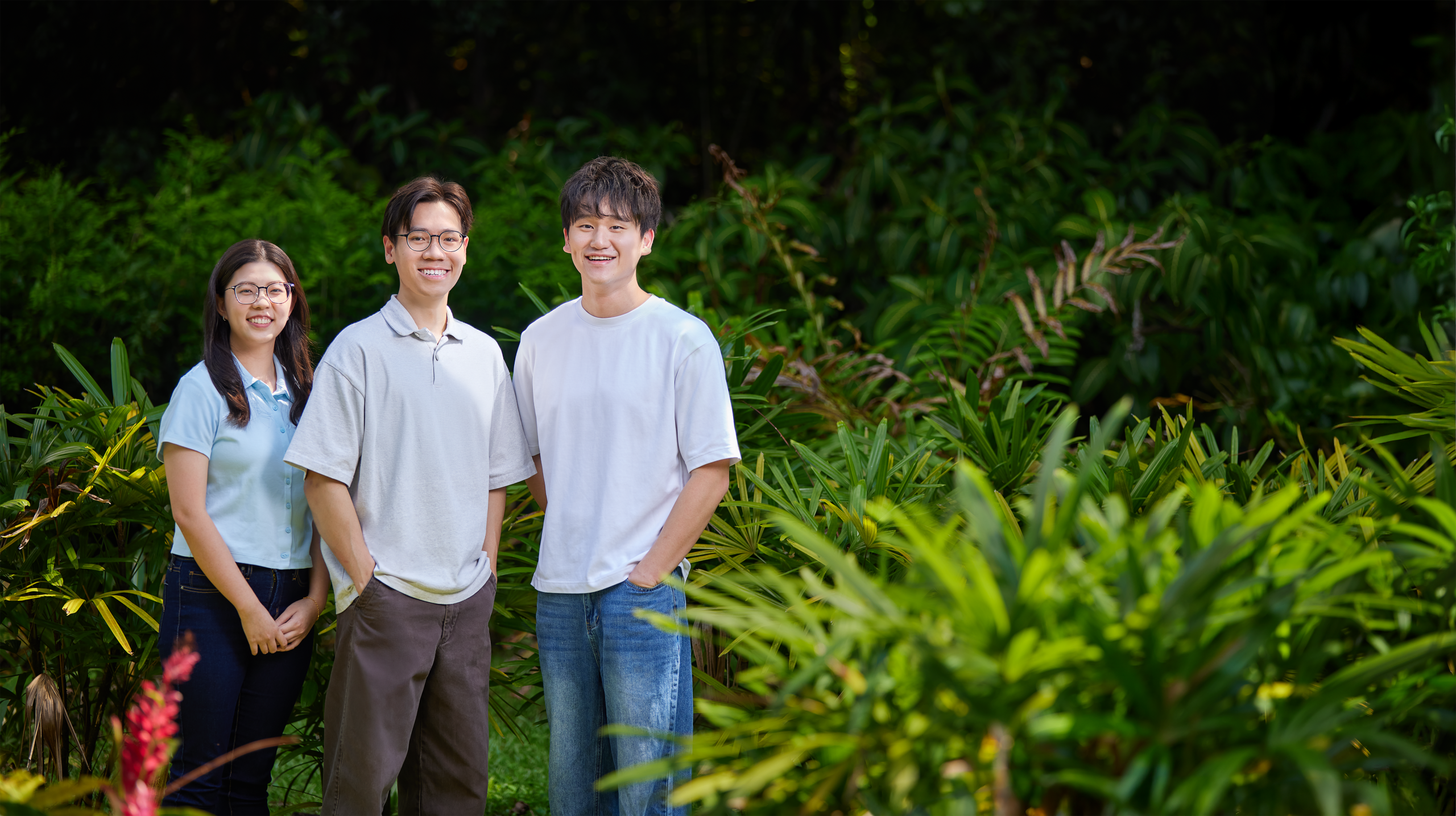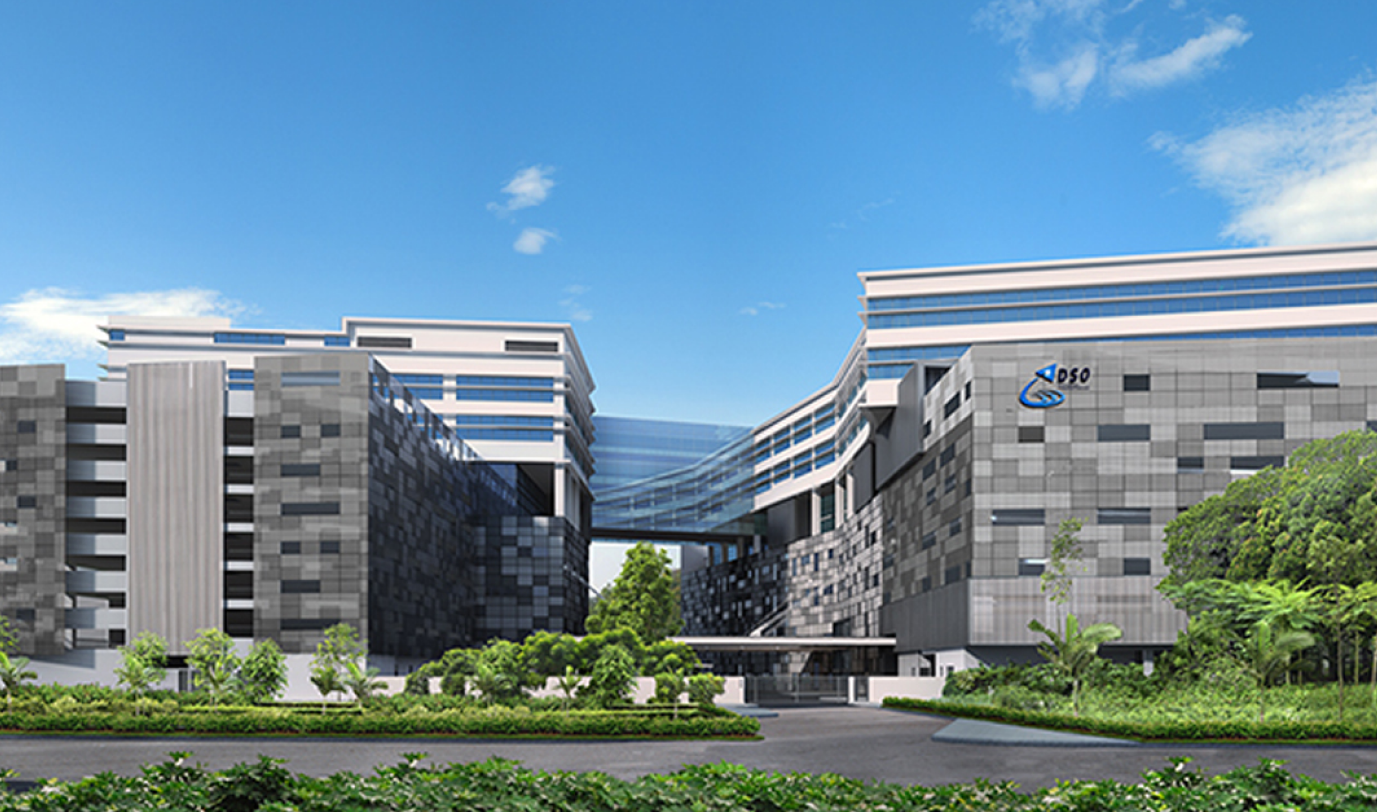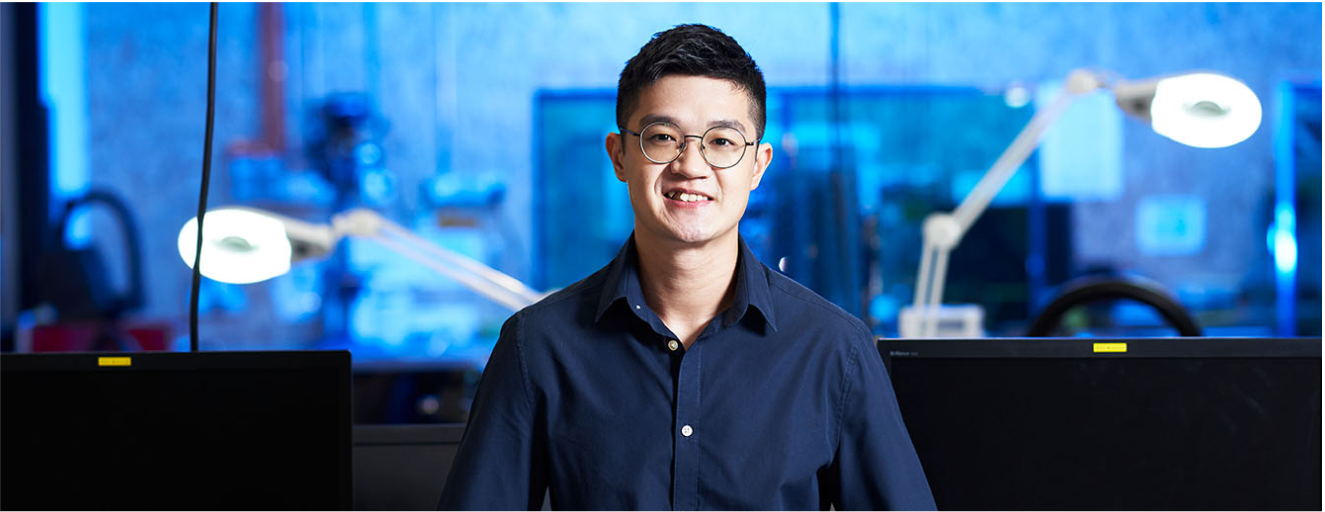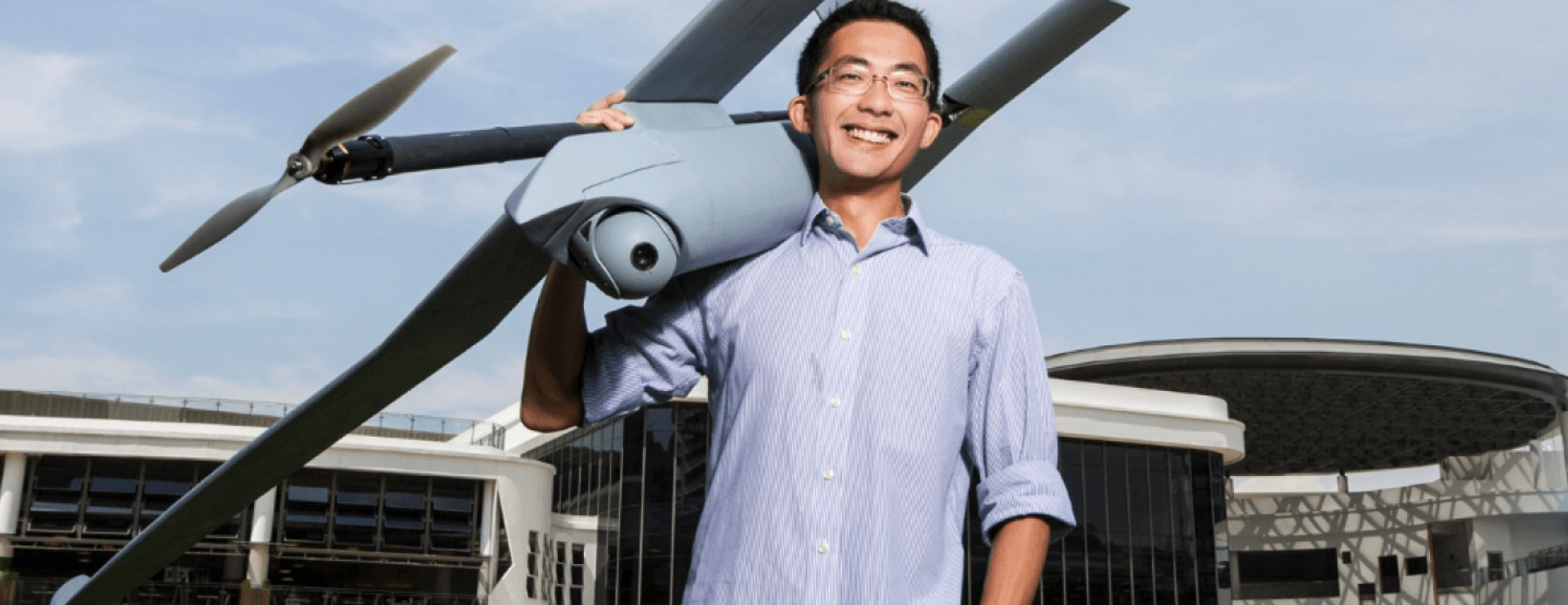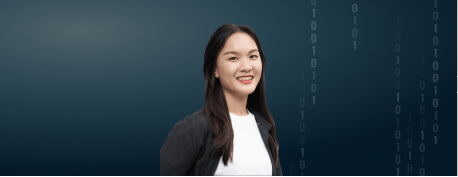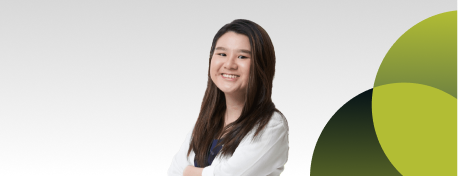Tailored, Not Typical
Featuring Jolene, an aerodynamics engineer in the Guided Systems Division.
When Jolene was very small, her father would bring her to the Singapore Airshow. Together, they would wander past the planes on display and marvel at the aerial performances. Those experiences sparked a lifelong interest in planes, leading her to pursue a degree in mechanical engineering. “I’ve always thought of the defence industry as a good place to grow as an engineer,” she says. “It’s proven to be true so far.”
Jolene found her way into the defence industry through a series of internships. This led her to DSO, which she heard had a good reputation for in-depth research. “In defence, it’s important to be at the forefront of technology, to find an edge,” says Jolene. “I felt like there was no other place in Singapore where you could find that and still feel like you’re doing something as meaningful.”
Her interview with Bertrand and Jonathan, her intern supervisors, from the Guided Systems division wasn’t a typical corporate screening. “They asked me about my interests and said the project could be customised to suit me. That surprised me,” she recalls. “They were willing to tailor the internship to what I wanted to learn.”
The project—using machine learning to predict the performance of different wing designs—turned out to be a perfect fit. Bertrand and Jonathan helped her structure the project into clear phases, but gave her autonomy to explore, propose models, and even to completely switch directions if she wanted to. “They never made me feel like I had to produce results for the sake of it,” says Jolene. “Here, the focus was on my learning process, rather than the result of the project.”
By the end of the internship, her mentors encouraged her to apply for a DSO scholarship. She did, and she came back as an aerodynamics engineer in the Guided Systems division after graduation.
What made her return? “The culture here. People are deeply passionate, and DSO doesn’t just fit you into a system; they build one around you,” she says.
Meaningful, Not Menial
Featuring Lionel, a mechanical & thermal engineer in the Engineering Division.
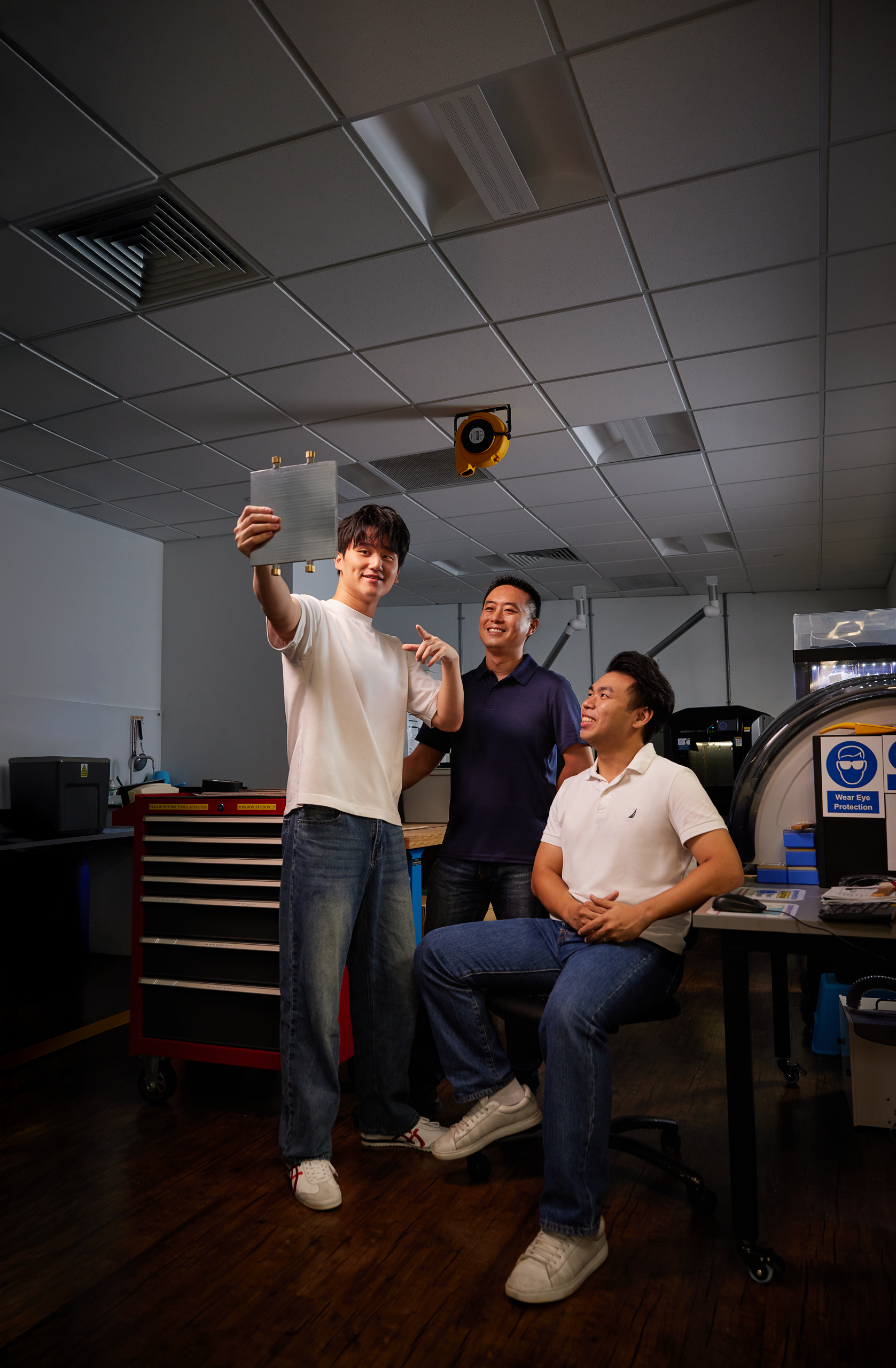
Lionel had already interned once before at DSO where he participated in the assembly, integration, and testing of Cubesats (small satellites) at STAR@NUS. “The idea that something I worked on would be launched into space? That felt meaningful,” he says. “We even had a launch party when it lifted off successfully.”
Back then, he spent his time assembling satellites in cleanrooms and running thermal vacuum tests to simulate space conditions. It was meticulous work, but also immensely satisfying; proof that hands-on R&D could lead to real-world impact.
His second DSO internship placed him in the Engineering (EN) division, where he explored using generative design for thermal and mechanical solutions. The goal is to develop optimised, lightweight, and high-performance designs that surpass traditional design approaches. “Generative design often results in organic-looking structures. You define the requirements, and the software determines the most efficient form.” Lionel says.
But applying generative design to two-phase thermal solutions, where materials change states to improve cooling capacity, was uncharted territory. Lionel had to learn the software from scratch, translate abstract engineering requirements into software-friendly inputs, and test multiple iterations. “The learning curve was steep, but my supervisor encouraged me to explore freely. I could even suggest new software to try, and DSO would be willing to fund it,” Lionel says.
“In commercial companies, a path that yields no result might be seen as a waste,” he adds. “But here, DSO sees value in exploration. Even dead ends deepen understanding.”
Interning at EN gave Lionel exposure to the full R&D pipeline, from design to simulation to potential production. “You feel like a colleague, not a student,” he says. “That ownership over your work; it makes all the difference.”
Job Offer, Not Job Reference
Featuring Sean, a computational fluid dynamics engineer in the Robotics Division.
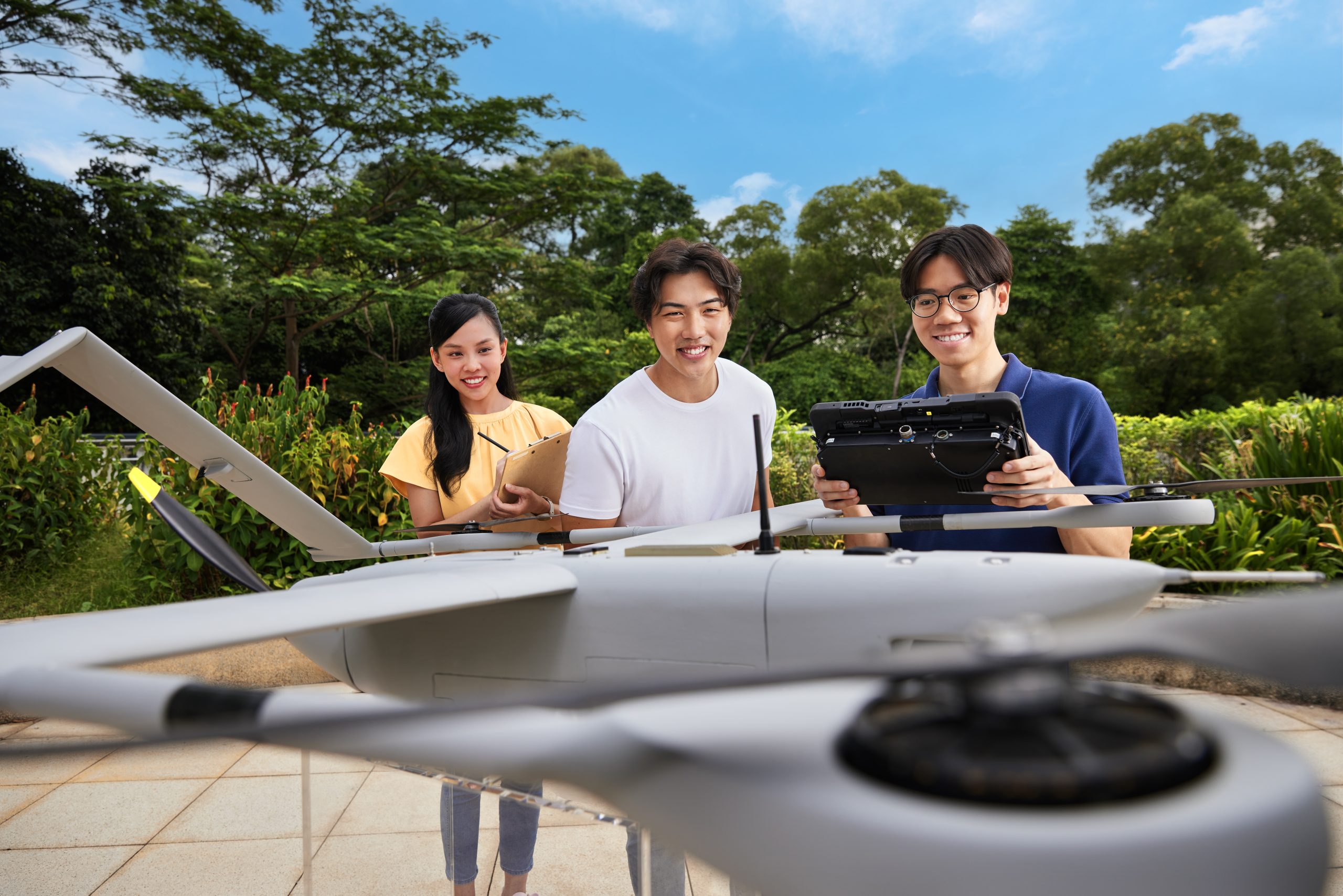
For Sean, it wasn’t about padding his resume. Instead, he wanted to find a place where his degree in mechanical engineering could help him work in actual development. He says, “In Singapore, most aerospace jobs lean towards maintenance. There aren’t many roles where you get to build something from the ground up. That’s what drew me to DSO.”
Sean’s internship project focused on how rain affects aircraft performance, a surprisingly under-researched topic. His supervisors guided him through the process: from literature reviews and exploratory simulations to full computational fluid dynamics (CFD) modelling using professional software. “It was daunting,” he admits. “The software had thousands of options, and interpreting results wasn’t easy at all.”
But over time, Sean built a foundation. “I had some theory from school, but this internship gave me a solid grounding in CFD. That was huge for me,” he says.
So much so that after his internship, he tailored his final-year project around CFD and continued taking modules in fluid dynamics. The hands-on experience didn’t just shape his skills; it clarified his career path. After his internship, DSO offered him a job in the Robotics Division, which he took.
He didn’t apply anywhere else after graduation. “This was exactly what I was looking for. If you want to stay in engineering and actually develop systems, DSO is one of the few places in Singapore that offers that.”
Now as a full-time engineer, Sean works on platform projects—building systems like drones from start to finish. “Every step builds on the last. You can see your work come together. It’s satisfying in a way no class ever could be.”
